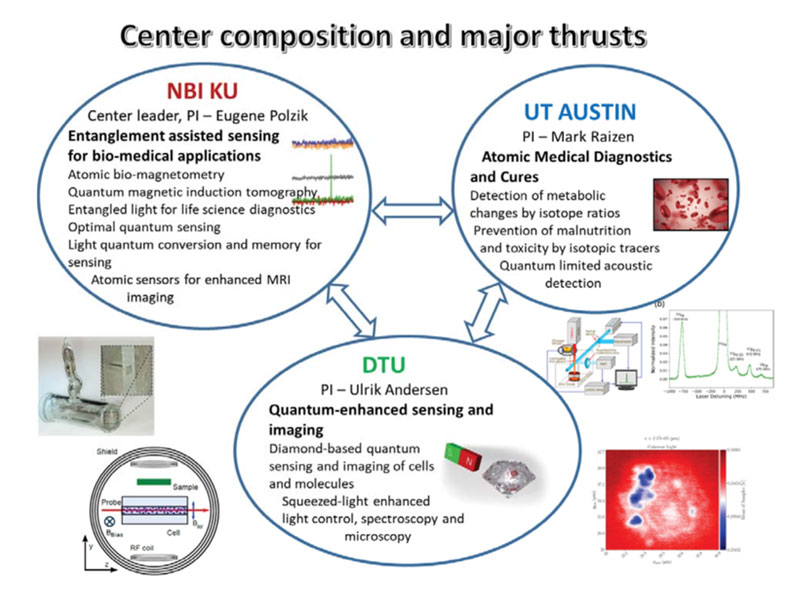Our work and the primary goal
Human health depends on our ability to prevent, diagnose, and treat disease, but many conditions do not cause any symptoms in their early stages when they could be effectively treated. Examples include metabolic disorders, nutritional deficiencies, cardiovascular conditions, brain diseases, and osteoporosis.
The primary goal
The primary goal of the Center is to develop and use novel quantum sensing principles and techniques for biomedical diagnostics that can operate near and beyond standard quantum limits of sensitivity, providing ultra-sensitive platforms for early detection of disease and facilitating profound investigations into molecular systems at an unprecedented scale and precision.
Towards this goal we will have to break interdisciplinary boundaries and work across disciplines developing collaborations between medical experts and quantum physicists.
The PIs of this proposal have pioneered basic physical principles and unique techniques for the proposed research, such as sensing beyond standard quantum limits, isotope enrichment and detection, and quantum-enhanced molecular imaging.
Within CBQS we will continue basic research and technology development capitalizing on the long-term funding and united by the common vision of creating a world-class research center focusing on quantum technologies for the benefit of biomedical diagnostics and healthcare.
3 partner groups at the Center
- Niels Bohr Institute Group (QUANTOP)
- Danish Technical University Group (QPIT - Quantum Physics and Information Technology)
- University of Texas Austin Group (Raizen Lab)
In collaboration with a network of external institutions:
Through their existing networks the PIs of the Center will foster interdisciplinary collaborations with medical doctors and biomedical researchers in Denmark, the US and worldwide.
An important component of the Center will be nurturing the next generation of quantum-ready workforce for the bio- and medical industries.

In the long term, novel atomic and quantum-enabled methods developed at the Center in collaboration with hospitals and biomedical experts will be applied to some of the most urgent health problems, such as early diagnostics of heart and brain anomalies, detection of metabolic changes in the body, prevention of malnutrition, toxicity and osteoporosis, nerve degeneration and response to antibiotics.
